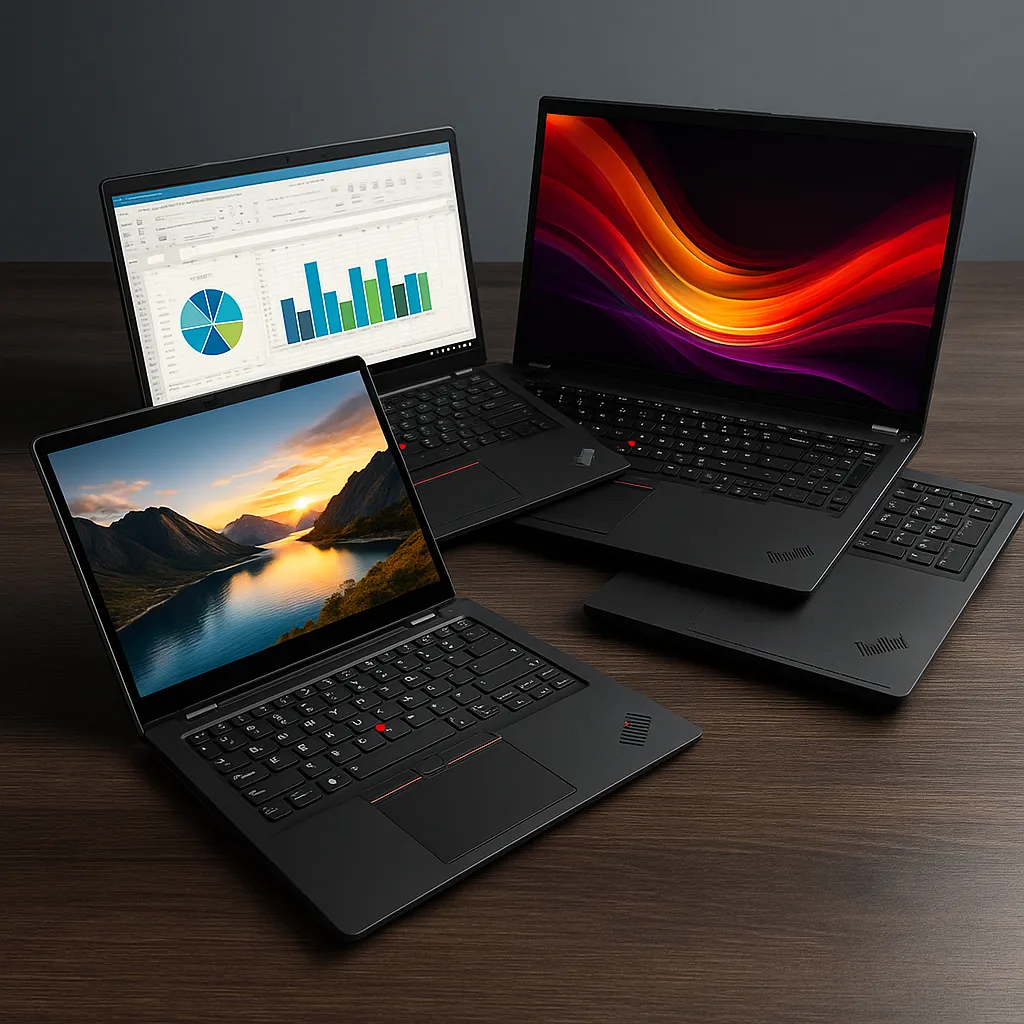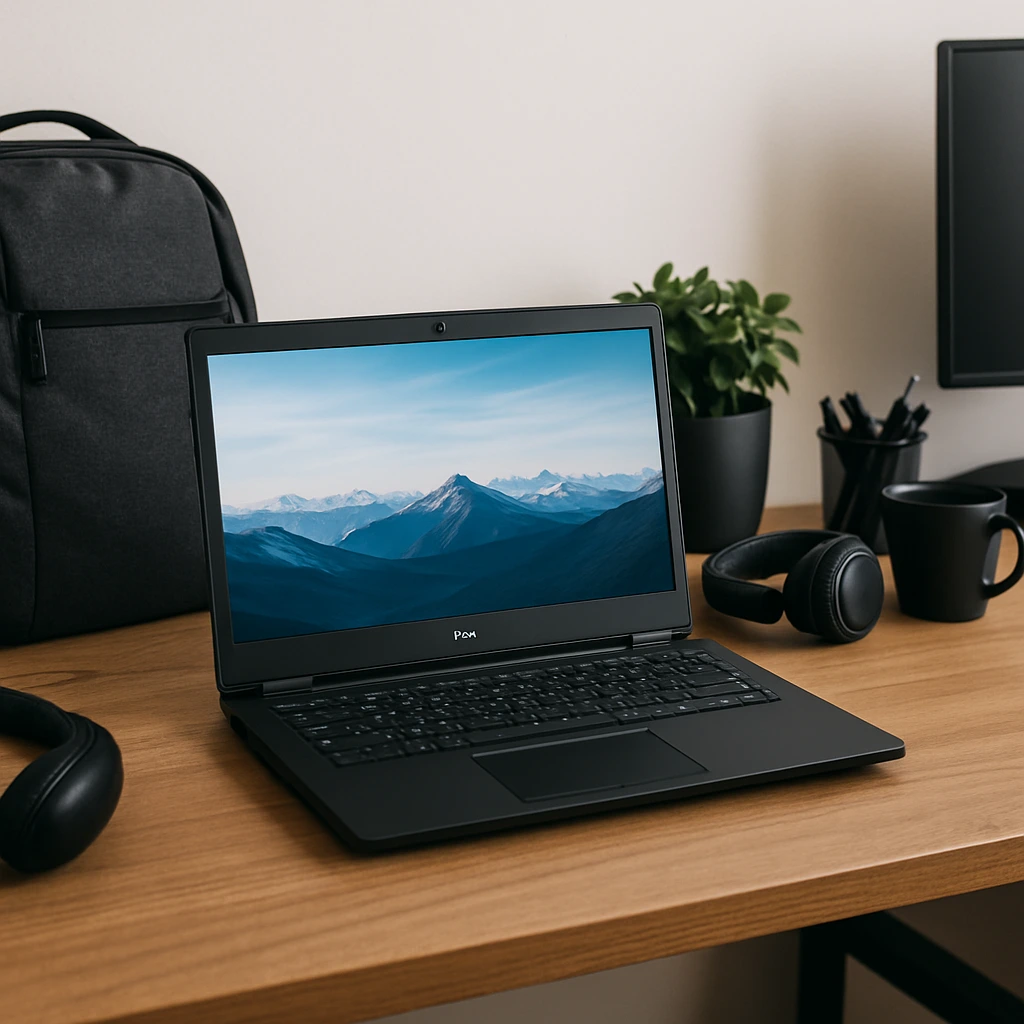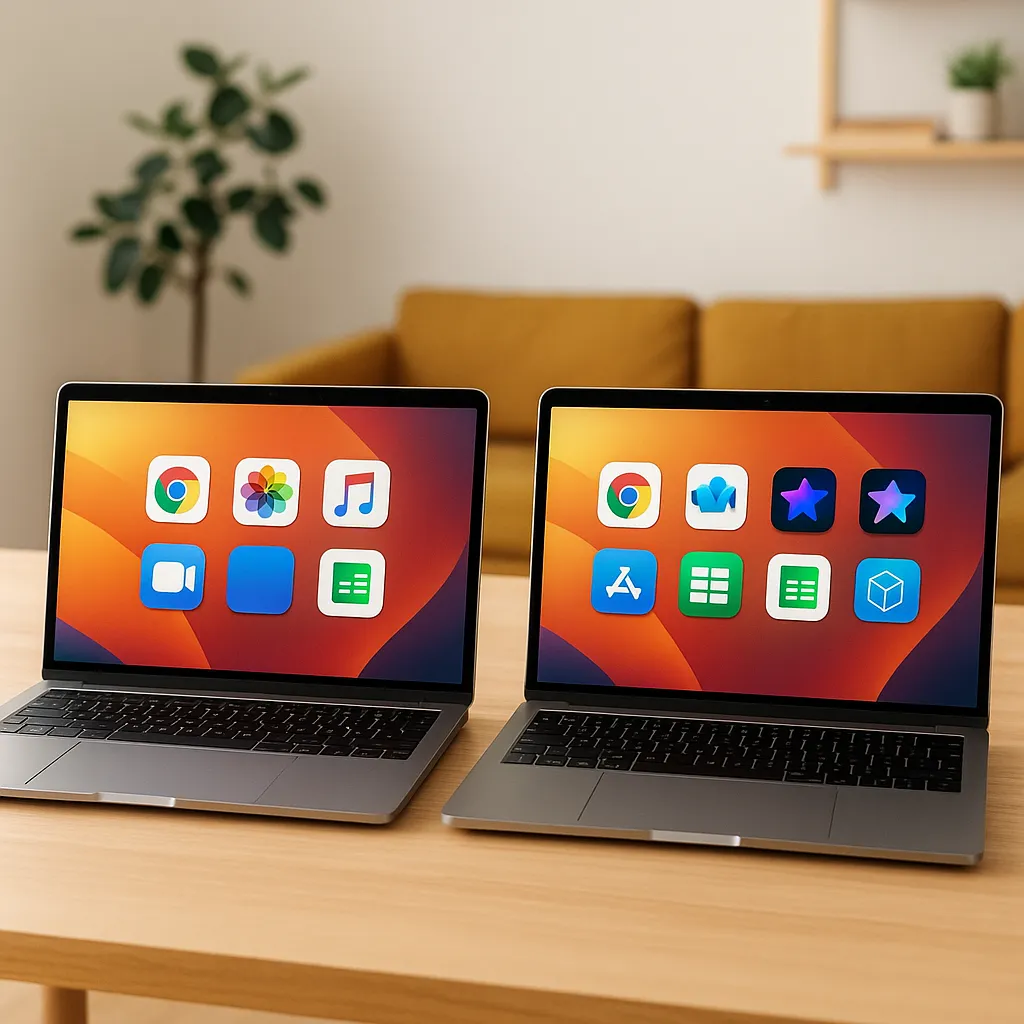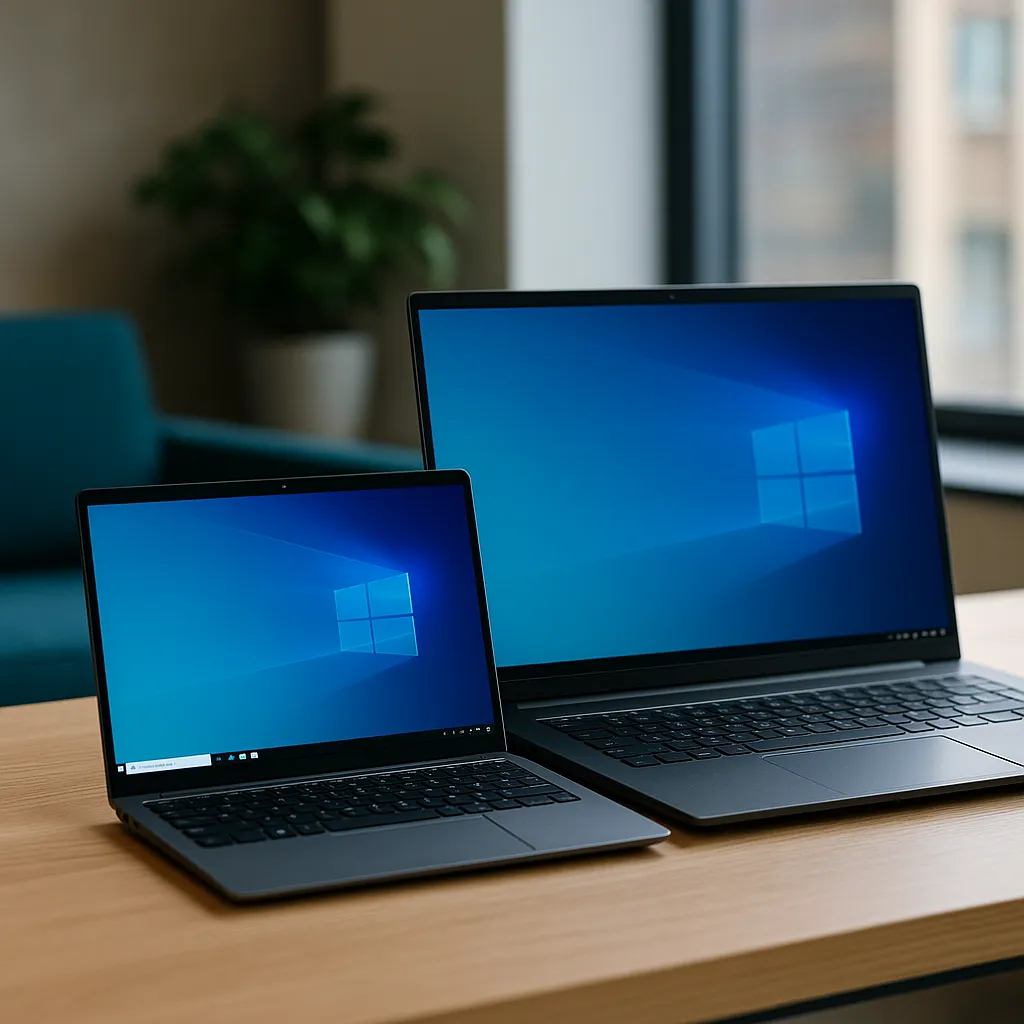Intel vs AMD Laptops: Which Is Better for Your Needs?
Disclosure: This post contains affiliate links. LaptopVoyager.com participates in the Amazon Associates Program and may earn commissions on qualifying purchases, at no extra cost to you.
Last Updated: December 2025
Choosing between Intel and AMD laptops isn’t as simple as it used to be. Both brands now offer fast, efficient processors that handle everyday work, creative tasks, and even gaming with ease. The real difference comes down to how you plan to use your laptop and which strengths matter most for your daily workload.
👉 If you want a clearer look at how modern laptop CPUs compare overall, this processor comparison guide explains how current Intel and AMD chips stack up in real-world use.
🔍 Intel vs AMD: What’s the Core Difference?
Intel and AMD approach laptop processors with slightly different priorities, even though performance gaps have narrowed significantly over the last few generations.
Intel processors generally focus on:
- Strong single-core performance
- Broad compatibility across software and peripherals
- Reliable efficiency in thin-and-light laptops
AMD processors typically emphasize:
- Higher core and thread counts
- Strong integrated graphics on many models
- Competitive pricing at similar performance levels
For most everyday users, both platforms feel fast and responsive. The differences become more noticeable once workloads get heavier.
🔍 Performance for Everyday Tasks
For browsing, office work, streaming, and general multitasking, both Intel and AMD laptops perform very well.
Intel laptops often feel especially responsive for:
- Web browsing
- Office and productivity apps
- Light multitasking
AMD laptops tend to shine when:
- Running multiple apps at once
- Handling heavier background tasks
- Relying more on integrated graphics
If you’re comparing newer systems, this detailed look at Intel Core Ultra vs AMD Ryzen 7000 helps explain how the latest generations differ in real-world performance and efficiency.
🔍 Multitasking and Creative Workloads
This is an area where AMD often pulls ahead.
Many AMD Ryzen laptop processors offer:
- More cores at similar price points
- Strong performance for video editing, coding, and creative work
- Better sustained speeds during longer workloads
Intel still performs very well, especially in newer generations, but AMD often delivers better value for users who multitask heavily or rely on CPU-intensive applications.
🔍 Gaming and Integrated Graphics
If a laptop doesn’t include a dedicated graphics card, AMD usually has the advantage.
AMD integrated graphics typically:
- Handle light gaming more smoothly
- Perform better in esports and casual titles
- Offer stronger GPU performance for creative apps
Intel’s integrated graphics have improved a lot, but AMD still leads overall when gaming without a dedicated GPU.
Once a laptop includes a dedicated NVIDIA or AMD GPU, the CPU brand becomes far less important for gaming performance.
🔍 Battery Life and Efficiency
Battery life depends on the whole laptop design, but processor efficiency still plays a role.
Intel laptops often excel in:
- Ultra-thin and premium designs
- Low-power and idle efficiency
- Consistent performance per watt
AMD laptops often deliver:
- Strong efficiency under heavier loads
- Competitive battery life in mid-range systems
- A good balance between performance and endurance
In real-world use, battery life varies more by screen, cooling, and power settings than by CPU brand alone.
🔍 Price and Overall Value
AMD laptops are often priced more aggressively.
You’ll commonly see:
More performance per dollar with AMD
Better value in mid-range performance laptops
Strong multitasking capability at lower prices
If you’re trying to narrow things down, looking at a few well-rounded AMD laptop options can help clarify which models deliver the best balance of performance and value: top laptops powered by AMD processors
Intel laptops:
- Dominate the premium ultrabook category
- Are widely available in business-focused models
- Are often paired with higher-end displays and build quality
Budget-focused buyers often lean AMD, while premium buyers still have more Intel-based options.
📌 Key Takeaways
- Intel and AMD laptops both handle everyday tasks very well
- AMD often offers better multi-core performance and value
- Intel excels in premium, thin-and-light designs
- AMD integrated graphics usually outperform Intel’s
- Battery life depends more on laptop design than CPU brand
- Dedicated GPUs reduce the importance of CPU brand for gaming
🟢 FAQs
Q: Is Intel better than AMD for laptops?
Not universally. Intel works well for premium ultrabooks, while AMD often performs better for multitasking and value-focused buyers.
Q: Are AMD laptops good for gaming?
Yes, especially models without dedicated GPUs. AMD’s integrated graphics usually deliver better gaming performance.
Q: Which lasts longer on battery, Intel or AMD?
Both can offer excellent battery life. Display quality, cooling, and power settings matter more than the processor brand.
Q: Is AMD cheaper than Intel?
Often, yes. AMD laptops frequently offer similar or better performance at lower prices.
✅ Conclusion
Choosing between Intel and AMD laptops comes down to how you use your device. Intel remains a strong choice for premium, ultra-portable laptops, while AMD often delivers better multitasking performance and value. Match the processor to your workload, and either platform can be a smart long-term choice.







